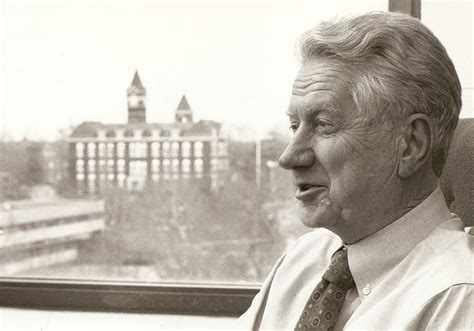Top 7 Quotes & Sayings by Edwin Gaustad
Explore popular quotes and sayings by Edwin Gaustad.
Last updated on April 14, 2025.
The first phrase of the First Amendment spoke to the freedom uppermost in Jefferson's mind when it provided that, 'Congress shall make no law respecting an establishment of religion, or prohibiting the free exercise thereof.' Here a double guarantee could be found: first, that government would do nothing to give official endorsement to a religion or to set one faith above another; second, that government would do nothing to inhibit the freedom of religion.
In America, religious dissent is as vital as it is elusive. Like the secretions of the pituitary, the juices of dissent are essential to ongoing life even if we do not always know precisely how, when or where they perform their tasks, and the not knowing - the flimsy, filmy elusiveness - is supremely characteristic of America's expressions of religious dissent. For in the United States no stalwart orthodoxy stands ever ready to parry the sharp thrust or clever feints of dissent.
Most of the founding fathers, sympathetic with and influenced by the European Enlightenment, saw religion - natural religion, that is - as a potential good, but with equal clarity they saw the religions of existing institutions and religions based on a fixed scriptural revelation as meddlesome, wrong-headed and hopelessly obsolete.
















